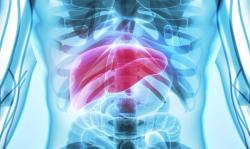
OR WAIT null SECS
Comorbidities, Social Determinants of Health Influence Hidradenitis Suppurativa, Study Finds
Study findings suggest an interplay between social determinants of health and HS, especially among underrepresented patient populations.
Findings from a recent study are helping to address the underrepresentation of certain patient populations in previous hidradenitis suppurativa (HS) research.1
Leveraging data from the All of Us Research Program as well as the United States and Canadian Hidradenitis Suppurativa Foundations, the study highlights a significant interplay between social determinants of health and HS, additionally emphasizing notable psychosocial implications among underrepresented groups.1
A chronic inflammatory skin condition, HS is characterized by painful lesions such as deep-seated nodules, abscesses, skin tunnels, and fibrotic scars. In addition to physical discomfort, HS is known to have a notable negative psychosocial impact because of the associated pain, involvement of sensitive locations, drainage, odor, disfigurement, and scarring.2
The development of HS is thought to have genetic, environmental, and behavioral influences. Additionally, the estimated prevalence ranges from under 1% to 4%, although these numbers are likely underestimated due to underreporting and misdiagnosis, especially in patient populations frequently underrepresented in HS studies.2
“HS presents a considerable challenge due to its high comorbidity burden and disproportionate impact on marginalized communities,” Katie Roster, a dermatology research fellow at Massachusetts General and an MD candidate at New York Medical College, and colleagues wrote.1 “While HS is significantly more common in patients with skin of color, these populations are underrepresented in HS research.”
To address this gap in research, investigators assessed the prevalence of pertinent comorbidities in patients with HS utilizing data from the All of Us Research Program. The cross-sectional analysis focused on relevant comorbidities from the United States and Canadian Hidradenitis Suppurativa Foundations, which were extracted from electronic health records using ICD9/ICD10 codes as well as SNOMED, LOINC, and RxNorm.1
Among a cohort of 319,098 patients, the majority (71%) were White, followed by Black/African American (25%) and Asian (4.4%). Investigators identified a total of 1802 (0.56%) patients with HS, most of whom were Black/African American (51%) or White (48%). Of note, there were significantly more females with HS than males (77% vs 21%; P <.001).1
Multivariate analyses revealed Black/African American individuals were significantly more likely to be diagnosed with HS than White individuals (odds ratio [OR], 2.68; 95% CI, 2.42–2.96; P <.001).1
Investigators noted patients with HS were more likely to be diagnosed with psoriasis (OR, 1.75; 95% CI, 1.42–2.12; P <.001), pointing to the potential importance of psoriasis screening in HS. Additionally, contrary to current guidelines, investigators observed a greater prevalence of obstructive sleep apnea among patients with HS (P <.001), with significantly increased odds of diagnosis (OR, 1.18; 95% CI, 1.05–1.32; P = .006). However, investigators noted the increased incidence of obstructive sleep apnea may have been linked to the greater prevalence of obesity in patients with HS (P <.001).1
Additionally, multiple comorbidities influenced by social determinants of health were found to be significant, including depression (OR, 1.47; 95% CI, 1.30–1.67; P <.001); anxiety (OR, 1.63; 95% CI, 1.44–1.85; P <.001); tobacco use (OR, 2.31; 95% CI, 2.06–2.58; P <.001); and hypertension (OR, 1.15; 95% CI, 1.02–1.30; P = .026).1
Investigators acknowledged multiple limitations to these findings, including the retrospective and cross-sectional study design; the inability to establish causality; and the absence of HS staging data preventing further analysis of the relationship between HS severity and comorbidities.1
“These findings emphasize the interplay between social determinants of health and HS, highlighting the psychosocial implications among underrepresented groups,” investigators concluded.1
References
- Roster K, Fleshner L, Farabi B, et al. The association of Hidradenitis Suppurativa with comorbidities in underrepresented patient populations: An All of Us database analysis. Journal of the European Academy of Dermatology and Venereology. https://doi.org/10.1111/jdv.20502
- Ballard K, Shuman VL. Hidradenitis Suppurativa. StatPearls. May 6, 2024. Accessed December 17, 2024. https://www.ncbi.nlm.nih.gov/books/NBK534867/
Related Content:


